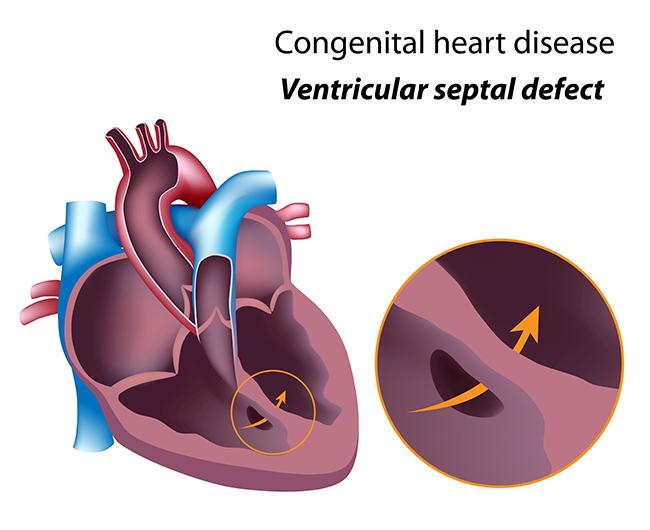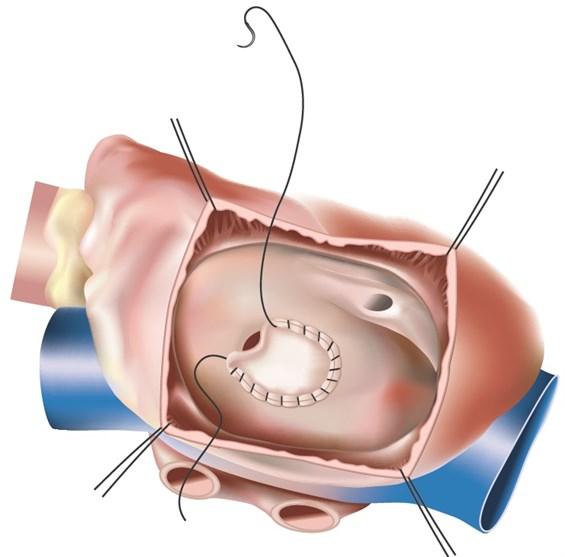VSD Closure Surgery in Adults: Restoring Heart Health
Learn about VSD closure surgery in adults, a procedure to repair Ventricular Septal Defects (VSDs) in the heart. Explore the benefits, procedure details, and recovery process of VSD closure surgery. Understand how this surgical intervention can restore heart health and improve quality of life.
Ventricular Septal Defect (VSD) is a congenital heart condition characterized by a hole in the wall separating the heart's ventricles. While VSDs are typically repaired during childhood, some individuals may require VSD closure surgery in adulthood due to delayed diagnosis or the development of symptoms. In this blog post, we will delve into the details of VSD closure surgery in adults, including the procedure itself, the benefits it offers, and what to expect during the recovery process.

Understanding VSD Closure Surgery in Adults
VSD closure surgery aims to repair the abnormal opening between the ventricles, allowing the heart to function more effectively. By closing the VSD, the surgery helps restore normal blood flow, prevents the backward flow of blood, and reduces the strain on the heart. This ultimately improves overall heart function and quality of life.

Indications for Adult VSD Closure Surgery
Adults may require VSD closure surgery if they experience symptoms such as shortness of breath, fatigue, chest pain, or heart palpitations. Additionally, the decision for surgery is based on the size, location, and hemodynamic consequences of the VSD, as well as the individual's overall health and the presence of associated heart conditions.
Benefits of VSD Closure Surgery in Adults
One of the primary benefits of VSD closure surgery in adults is the improvement in heart function and blood flow. By repairing the VSD, the surgery reduces the volume overload on the heart and prevents the mixing of oxygen-rich and oxygen-poor blood, leading to better oxygenation and circulation throughout the body.
Symptoms and Complications
VSD closure surgery can alleviate symptoms associated with VSDs, such as shortness of breath, fatigue, and exercise intolerance. It also reduces the risk of complications, such as heart failure, infective endocarditis, and pulmonary hypertension, which can occur when VSDs are left untreated.
The VSD Closure Surgery Procedure
Before VSD closure surgery, a comprehensive evaluation is conducted to assess the patient's overall health and the characteristics of the VSD. This may involve medical tests, imaging studies, and consultations with a cardiologist and cardiac surgeon. The surgeon will discuss the procedure, potential risks, and expected outcomes with the patient.
Surgical Technique and Approach
VSD closure surgery is typically performed under general anesthesia. The surgeon makes an incision in the chest to access the heart. The VSD is then repaired using either sutures or a patch, which is carefully placed over the opening to close the defect. The surgical incision is closed, and the patient is moved to the recovery area.
Recovery and Postoperative Care
After VSD closure surgery, the patient is closely monitored in the hospital's cardiac care unit. Pain management, medications, and intravenous fluids are provided as needed. The length of the hospital stay varies but is typically a few days. During this time, the medical team ensures stable heart function and monitors for any complications.
Follow-Up Care and Rehabilitation
Following discharge, a structured follow-up plan is established to monitor the healing process and assess the overall outcome. This may involve regular appointments with the cardiologist, echocardiograms, and lifestyle modifications. Cardiac rehabilitation programs may also be recommended to gradually increase activity levels and optimize recovery.
Conclusion
VSD closure surgery in adults is a significant step towards restoring heart health and improving quality of life. Through the repair of Ventricular Septal Defects, this surgical procedure enhances heart function, reduces symptoms, and mitigates the risk of complications. If you are an adult with a diagnosed VSD, consult with a skilled cardiac surgeon to discuss the potential benefits of VSD closure surgery for your specific case. Embrace the opportunity to regain a healthier heart and enjoy a better quality of life.
We are associated with experienced and highly skilled medical professionals. We use the latest medical technology available in the world and we provide medical services in collaboration with JCI & NABH Certified hospitals only. Our services include various types of treatment and organ restructuring and transplant.
